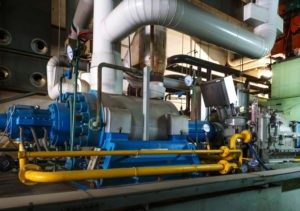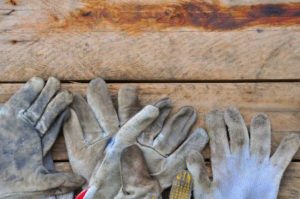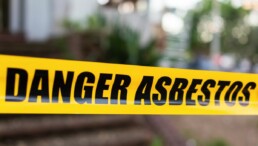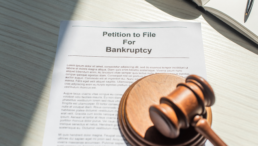Shepard O’Donnell Partner Michael McCann Named “Rising Star of the Plaintiffs Bar” by The National Law Journal
Shepard O’Donnell, one of the top asbestos personal injury law firms in Massachusetts for over 25 years, announces that Partner Michael McCann has been named a 2024 Elite Trial Lawyers honoree by The National Law Journal in the “Rising Stars of the Plaintiffs Bar” category. The award celebrates the accomplishments of lawyers under 40 who have demonstrated outstanding litigation skills, service to the community and made significant contributions to their firm. McCann and fellow honorees will be recognized at an award ceremony in New York City on July 11.
McCann’s practice focuses on asbestos litigation, tobacco lawsuits and other complex tort litigation matters. His extensive experience includes arguing before the Massachusetts Supreme Judicial Court and leading the Shepard O’Donnell team in several groundbreaking cases. His exceptional professional acumen led to his promotion to partner in 2019.
“Witnessing Mike’s growth as an attorney and having him a part of our firm has been a privilege. He’s a top-notch litigator and a key partner at Shepard O’Donnell,” said Founder Michael Shepard. “He adeptly manages the complexity of asbestos and toxic tort litigation and is committed to ensuring his clients receive the justice they deserve. I couldn’t think of a more suitable honoree!”
As an active member of the Boston legal community, McCann is a member of the Massachusetts Academy of Trial Attorneys and the American Association for Justice. In addition to his recognition as a “Rising Star of the Plaintiffs Bar,” he has been recognized by Massachusetts Lawyers Weekly as an “Up & Coming Lawyer,” Massachusetts Super Lawyers as a “Rising Star” since 2019 and The Best Lawyers in America as “One to Watch” since 2023. The complete list of finalists and honorees for the 2024 Elite Trial Lawyers awards can be found here.
The National Law Journal reports on breaking news and trends for law firms and legal departments about the evolving federal regulations in a volatile political climate.
Shepard O’Donnell Partner Michael McCann Named “Up & Coming Lawyer” by Massachusetts Lawyers Weekly
Shepard O’Donnell, one of the top asbestos personal injury law firms in Massachusetts for over 25 years, announces that Partner Michael McCann has been named a 2024 Excellence in the Law honoree by Massachusetts Lawyers Weekly in the “Up & Coming Lawyers” category. The “Up & Coming Lawyers” award celebrates the exceptional professional and community accomplishments of attorneys practicing less than 10 years. McCann and fellow honorees will be recognized at a reception in Boston on March 19.
McCann’s practice focuses on asbestos litigation, tobacco lawsuits, and other complex tort litigation matters. He has argued in front of the Massachusetts Supreme Judicial Court and served as lead counsel in multiple landmark cases. As a result of McCann’s professional acumen, he was elevated to partner in 2019.
“It has been an honor to watch Mike grow as an attorney over the decade,” said Founder Michael Shepard. “He manages the complexity of asbestos and toxic tort litigation with adeptness and is committed to obtaining justice for his clients. I am elated to see Mike recognized for his consistent excellence!”
As an active member of the Boston legal community, McCann is a member of the Massachusetts Academy of Trial Attorneys and the American Association for Justice. In addition to his recognition as an “Up & Coming Lawyer,” he has been recognized by Massachusetts Super Lawyers as a “Rising Star” since 2019 and The Best Lawyers in America as “One to Watch” since 2023. The full list of Excellence in the Law honorees can be found here.
Massachusetts Lawyers Weekly reports decisions issued by all the state and federal courts in Massachusetts, as well as changes to court rules, verdict and settlement reports, bar-discipline notices, and all other news vital to attorneys in the commonwealth. It also covers hundreds of rulings from state and federal trial courts in Massachusetts.
Three Shepard O’Donnell Attorneys Recognized in the 2023 Edition of Massachusetts Super Lawyers
Shepard O’Donnell, one of the top asbestos personal injury law firms in Massachusetts for 25 years, announces that three of its attorneys were selected for inclusion in the 2023 edition of Massachusetts Super Lawyers, with two included on the Super Lawyers list and one on the Rising Stars list.
Founder Michael Shepard and Co-Managing Partner Erika O’Donnell were recognized on the 2023 Massachusetts Super Lawyers list in the Personal Injury – Products: Plaintiff practice area.
Partner Michael McCann was recognized on the 2023 Massachusetts Rising Stars list in the personal Injury – Products: Plaintiff practice area. The Rising Star designation recognizes lawyers under the age of 40 years old or those in practice for less than ten years. Each year, no more than 2.5% of lawyers in each state are selected for inclusion on the Rising Star list.
Super Lawyers is a research-driven, peer-influenced rating service for lawyers who have attained a high degree of peer recognition and professional achievement. The mission of Super Lawyers is to bring visibility to attorneys who exhibit excellence in practice. The selection process, as detailed on the Super Lawyers website, is multi-phased and includes independent research, peer nominations and evaluations that identify a high degree of peer recognition and professional achievement.
The Deposition in an Asbestos Case: What is it and why it’s important
Written by: Michael McCann
For most people, a deposition is unfamiliar territory. And even for those who have experienced a deposition in another setting, a deposition in an asbestos case can be a completely different experience.
What is a deposition?
A deposition does not take place in court; the deposition usually takes place in a conference room but it is sworn testimony. During the deposition, the witness will be asked questions by an attorney, usually an attorney who represents the opposing party or parties. The witness will provide answers to those questions under oath. A court reporter will be present and takes down all of the questions and answers, creating a transcript of the deposition, so that it can be referred to at a later date. At Shepard Law, we try to find a location that is most convenient to you, which is usually at a nearby hotel or conference center.
If I’ve been diagnosed with mesothelioma will I need to give a deposition?
Typically, in an asbestos case, the injured person is the most important witness, because he or she is usually in the best position to provide testimony about the asbestos-containing products that he or she worked with during their career. Since the testimony of the injured person is a central part of an asbestos case, a deposition of the injured person is usually taken if he or she is available to testify. Having said that, I must note that our clients’ health is of utmost importance to us. These depositions proceed based on the health of the deponent. If, in the middle of the deposition, you begin to feel too tired or sick to continue, we will immediately stop the deposition and have it continue on another day, when you are feeling better. We will make sure that your deposition is completed in the most convenient and efficient way possible.
Why is a deposition important?
Depositions are very important in civil cases in Massachusetts. Since a large majority of civil cases settle out of court before reaching trial, deposition testimony that identifies the asbestos-containing products that the injured person worked with is vital, because this is the evidence the parties will use when discussing settlement. Before trial, it’s typical that the only testimony in the evidence record will be deposition testimony, which makes it that much more important to the strength of the case. Since the burden of proof in a civil case is on the Plaintiff, we must present enough evidence to show that a particular product or products caused the injury that the Plaintiff has suffered. Deposition testimony is a key component of putting together a strong case.

What makes a deposition in an asbestos case unique?
Depositions in asbestos cases are different than other types of cases, because asbestos cases usually have multiple defendants. Therefore, there will typically be multiple attorneys that will cross-examine the witness at an asbestos deposition. These attorneys represent the various defendant companies that have been sued in the case, and each attorney will focus their questioning on the particular products that their client companies manufactured or sold. Each attorney will take turns asking questions, and one of our attorneys will be by your side during the entire deposition.
A deposition can certainly seem like an intimidating experience, but this is where our firm’s experience and expertise in these matters come in handy. Our attorneys have represented asbestos victims at countless depositions over the years. We understand how the process works, and will be at your side to protect your rights and your interests during the entire deposition.
If you or a loved one has been diagnosed with an asbestos-related illness like mesothelioma or lung cancer, and would like to know more about your rights, please call us for a free, confidential consultation at (617) 451-9191.
Asbestos Exposure Spotlight: Power Plants
Written by: Michael McCann
While power plants are vital to the operation of many facilities, schools, and campuses throughout New England, they were also a major source of asbestos exposure to power plant workers through the 1980’s. At a typical multi-building facility, the power plant was the building that generated steam to heat the other buildings in the facility. This was a common design for manufacturing facilities and college campuses that were made up of multiple buildings. Back in the 20th century, most of these power plants utilized dozens upon dozens of asbestos-containing products. What types of asbestos-containing products were used in these power plants?
First, the biggest piece of equipment in these power plants were the boilers that generated the steam for the rest of the facility. Large, steam-generating boilers utilized many different asbestos-containing components, including insulation, refractory material, and gaskets. Insulation and refractory material needed to be replaced periodically throughout the lifetime of the boiler. Repairing these materials could expose the power plant worker to hazardous asbestos dust.
The gaskets on these large boilers were found in various places. The biggest gasket went around the boiler door. This gasket had to be removed and replaced each time the boiler door was opened. Gaskets were also used around the other manways and handholes on the boiler. Manways were other openings on the boiler that would allow a person to enter the boiler to inspect or repair it. Each time these manways were opened, the gasket needed to be replaced. Handholes were smaller openings on the boiler that allowed for inspection of internal components of the boiler, by sticking in a hand or your head to view the inside of the boiler. These handhole gaskets also had to be replaced each time the handhole was opened. The removing and replacing of these gaskets would create hazardous airborne asbestos dust.

Boilers were certainly not the only products that exposed power plant workers to asbestos. These power plants needed many more pieces of equipment to operate efficiently. This equipment included pumps, valves, steam traps, heat exchangers, and various others types of products. Most of these pieces of equipment used asbestos-containing gaskets and packing material through the 1980s. These pieces of equipment needed to be maintained on a regular basis, and replacing the gaskets and packing on these pieces of equipment would create hazardous airborne asbestos dust.
While a lot of the power plants in Massachusetts that operated during the 20th century are no longer in operation, many are still active today. Our office has handled cases arising from asbestos exposure at a number of power plants in the area, some of those include:
- Phillips Andover Academy: Andover, MA
- Pilgrim Nuclear Power Station: Plymouth, MA
- Bird & Son: E. Walpole, MA
- Dennison Manufacturing: Framingham, MA
- Harvard University: Cambridge, MA
- MIT: Cambridge, MA
- Boston Edison: L Street Station, Edgar Station, and Mystic Station
- Northeastern University: Boston, MA
- Holy Cross University: Worcester, MA
- Boston College: Chestnut Hill, MA
- Brooks School: North Andover, MA
- Groton School: Groton, MA
If you or a loved one has been diagnosed with an asbestos-related illness like mesothelioma or lung cancer, and would like to know more about your rights, please call us for a free, confidential consultation at (617) 451-9191.
How Workers Brought the Dangers of Asbestos Home to Their Families
Written by: Shepard Law Firm Staff
Most people would be surprised to know that there are a significant number of people who have developed asbestos-related illnesses without working with or around asbestos or asbestos-containing products. Most of these cases involve the spouse or family member of someone who worked with asbestos-containing products. But how did these household members, who never personally worked with asbestos-containing products, get exposed to asbestos dust?
The danger of asbestos arises when asbestos fibers are released into the air and are then breathed into the human body. This typically occurs when asbestos-containing products are repaired and replaced. For instance, when an old asbestos-containing gasket is scraped from a pipe flange, that scraping process releases asbestos-containing dust into the air. In most asbestos cases, the injured person is the worker, who breathes in this dust while personally doing the work.
Unfortunately, that is not the only risk created by asbestos-containing products. The dust from an asbestos-containing product can also get on the clothing of the person doing the work, as well as on the clothing of any individual who is working in the near vicinity. This dust can stay on the worker’s clothing for long periods of time, and when the worker wears his or her dirty work clothing home, the dust can come along for the ride.

Anyone who has done laundry before understands the typical process for washing dirty and dusty clothing. Instead of placing these dirty and dusty clothes directly in the washing machine, most people shake out these clothes in order to get all the dust off of them. Shaking out dirty work clothing creates dust that gets breathed in by the person doing the shaking, as well as by those who are in the area helping out with the laundry. And if the person who wore those dirty clothes worked with or around asbestos-containing products, the dust on those clothes could contain asbestos. We have seen many mesothelioma cases where the injured person’s only exposure to asbestos came from laundering dirty work clothing. This type of exposure to asbestos is called “take home” exposure and doing laundry is one of the more common sources. From an emotional standpoint, these cases are very disheartening, and usually come as a complete shock to families.
These cases also differ from the typical asbestos cases in how the evidence of exposure is put together. The most important part of an asbestos case is product identification. The Plaintiff or injured person has to prove they were exposed to asbestos from certain products. Typically, it is the injured person who will identify from which products he or she was exposed to asbestos. However, in “take home” exposure cases, the injured person is someone who didn’t work with asbestos products, and is unlikely to know which products they might have been exposed to. Therefore, in “take home” exposure cases, the more knowledgeable witness, with regard to product identification, is usually the spouse or household member who actually worked with the asbestos products and brought asbestos dust home on their work clothing. The spouse or household member can testify about the work he or she did with asbestos or asbestos-containing products and the condition of their work clothing when it was worn home. This evidence, combined with testimony that the injured person laundered the dirty work clothing, is sufficient to satisfy the requirements of product identification.
Unfortunately, these types of cases have become much more common in recent years. Our firm has handled many of these cases, and has the knowledge and experience needed to succeed in this complex area of litigation.
If you or a loved one has been diagnosed with an asbestos-related illness like mesothelioma or lung cancer, and would like to know more about your rights, please call us for a free, confidential consultation at (617) 451-9191.
Common Questions About Asbestos Litigation: “Am I a part of a class action? Are we suing my employer?”
Written by: Shepard Law Firm Staff
One of the most common questions that I receive from my clients who have filed lawsuits for injuries resulting from asbestos exposure is whether their claims are a part of a class action lawsuit. We file individual lawsuits on behalf of our clients; your claims are not part of a class action.
Class actions are a very unique type of lawsuit. They consist of a large class of plaintiffs who have all suffered similar injuries that were caused by a common defendant or defendants. If a settlement is reached in a class action, those settlement proceeds are then divided among the entire universe of plaintiffs that are in the class.
The asbestos lawsuits that we file on behalf of our clients are separate, individual cases that are not connected to any other cases. They are not class actions. Each case has its own complaint and its own civil action number. The injured party and his/or her spouse will be the only plaintiffs named in the case. This ensures that each one of our clients’ cases receives the individual attention that it deserves.
Another common question regarding asbestos lawsuits has been asked over the years is: “Are we going to sue my employer?” The answer here is that the Massachusetts statute that governs workers’ compensation bars any third party tort claims against the claimants’ employers. This means that if you suffer a work-related injury, and you want to recover damages for that injury from your employer, your only remedy is through workers’ compensation. You typically cannot sue your employer in a tort case for a work-related injury; you must go through workers’ compensation.
So who are the defendants in an asbestos case? Asbestos lawsuits typically name as defendants the companies that manufactured and sold the asbestos-containing products to which the injured person was exposed. These companies are required to design safe products and to warn about the dangers associated with the products they manufacture and sell. That did not happen with asbestos. Other potential defendants include companies that sold or distributed asbestos-containing products, as well as those who used asbestos-containing products at their premises. Each asbestos case is unique and the facts of your case will determine who the defendants in your case will be.
At Shepard Law, we take an individual approach with each client and with each case. With our extensive experience litigating asbestos-related personal injury claims, we put our clients in the best situations for them to maximize their recovery. If you or a loved one has been diagnosed with mesothelioma or lung cancer and would like to know more about your rights, please call us for a free, confidential consultation at (617) 451-9191.
This Veterans Day, We Should Also Honor Those Who Were Injured by Asbestos
Written by: Michael McCann
Each year in November we get the chance to pay tribute to the brave men and women who have served in the armed forces. While all veterans should be honored and thanked 365 days a year, Veterans Day provides us with a special opportunity to thank those who have served our country.
Many of our firm’s clients are veterans who are suffering from asbestos-related diseases, such as mesothelioma and lung cancer. Because of this, I have had the opportunity to work with those who have served in virtually every branch of the military. I always enjoy hearing stories about the things our clients encountered while defending our country, some clients even share old photo albums from their military service. While it is an honor to help these veterans and their families work through the process of litigating asbestos claims, it is also disheartening to know that because of their dedication and service, many veterans will continue to develop asbestos-related diseases every year.
Veteran’s Exposure to Asbestos
Asbestos was commonly used in various roles by the armed forces for many years. Asbestos was found in the equipment in the engine and boiler rooms on Naval vessels, as well as in the brakes and engines of Air Force and Naval aircraft, and in many other products. These products had to be maintained and repaired on a regular basis. That maintenance and repair work released asbestos fibers into the atmosphere, which could have been breathed in by anyone working in the nearby area.
Earlier this year, several attorneys from our firm took a trip to Battleship Cove in Fall River, MA (http://www.battleshipcove.org). We were treated to a tour of the USS Massachusetts and the USS Joseph P. Kennedy, Jr. During this remarkable experience we explored every aspect of these vessels, including the engine and boiler rooms – which have remained largely intact from when the ships were operational. It was a particularly poignant experience since many of our clients worked in these engine and boiler rooms as either:
- Machinist Mates
- Boiler Technicians
- Electricians
- Firemen
- Engineers
In fact, asbestos was so prevalent among these positions that the military website miltary.com reported that:
‘Virtually every ship commissioned by the United States Navy between 1930 and about 1970 contained several tons of asbestos insulation in the engine room, along the miles of pipe aboard ship and in the walls and doors that required fireproofing.’
Although the engine and boiler rooms we saw were clean of asbestos, this was not the case when these vessels were operational and it was easy enough to image what the working conditions would have actually been like aboard a Naval vessel during the mid-20th century. At that time, those engine and boiler rooms would have been packed with servicemen, whose work on the equipment would have created a dusty and dirty atmosphere. It was that dust, inhaled by unsuspecting men and women which decades later has caused so many veterans to suffer from asbestos-related illnesses.
Protecting Your Legal Rights
Our office has represented hundreds of veterans in asbestos cases over the years so we understand how and where asbestos was used in military applications. Often, our clients were not even aware that they had come into contact with asbestos until they received a diagnosis of mesothelioma. If you or a loved one is a veteran that has been diagnosed with mesothelioma, you may qualify for additional benefits. Please call us for free, confidential consultation (617) 451-9191.














